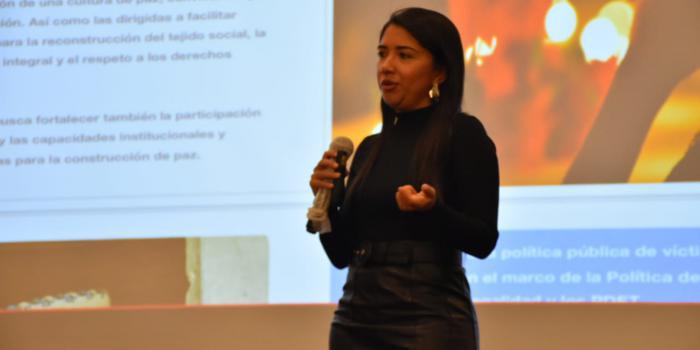
The Unit will carry out actions in eight PISDA municipalities
These places are dealing with illicit crops substitution processes and have more than 31,000 conflict victims.

This Tuesday, the Unit for the Victims introduced the actions it enforces in eight municipalities where the Alternative Development Integral Plans (PISDA in its Spanish acronym) are being executed. PISDA is a strategy that seeks to fight illicit crops and drug trafficking within the framework of the Government’s Peace with Legality Policy.
Lorena Mesa Mayorga, the entity’s General Sub-director, spoke about these attention, assistance and integral conflict victims’ reparation actions. She also focused on the articulation with the territorial entities in these regions.
“We present to these municipalities’ mayors the Unit’s institutional offer. We have more than 31,000 registered conflict victims in these territories, therefore, we want to apply the Public Victims Policy, so we can move forward on the integral reparation,” highlighted the Sub-director.
Barrancominas (Guainia), Cumaribo (Vichada), Ipiales (Nariño), Bolivar, Dagua and El Dovio (Valle del Cauca), Piamonte and Rosas (Cauca) are the eight municipalities where the Unit will work to guarantee the victims’ rights; there are 31,249 victims, 18 Collective Reparation Subjects and 4 Return and Relocation Plans.
The actions relate to contingency plans activation, prevention coordination and emergency care, Humanitarian Assistance, declarations assessment for Single Victims Registry inclusion, and both individual and collective reparation measures.
Local entities articulation in these regions is fundamental for these actions’ execution, as highlighted by Mesa Mayorga:
“We will work on immediate assistance for humanitarian aid with the territorial entities. In the same manner, we will deal with overcoming the victims’ vulnerability situation, population comprehensive reparation and characterization, implementing strategies for returns and relocations, collective reparation and emotional rehabilitation, among others.”
The Sub-director also emphasized on the cross-disciplinary factor implementation in the victims’ reparation process, a factor that must be present in the victim’s participation, as well as in differential and ethnic approaches, as it is established by the 1448 Law.
(End/SSS/COG/RAM)






